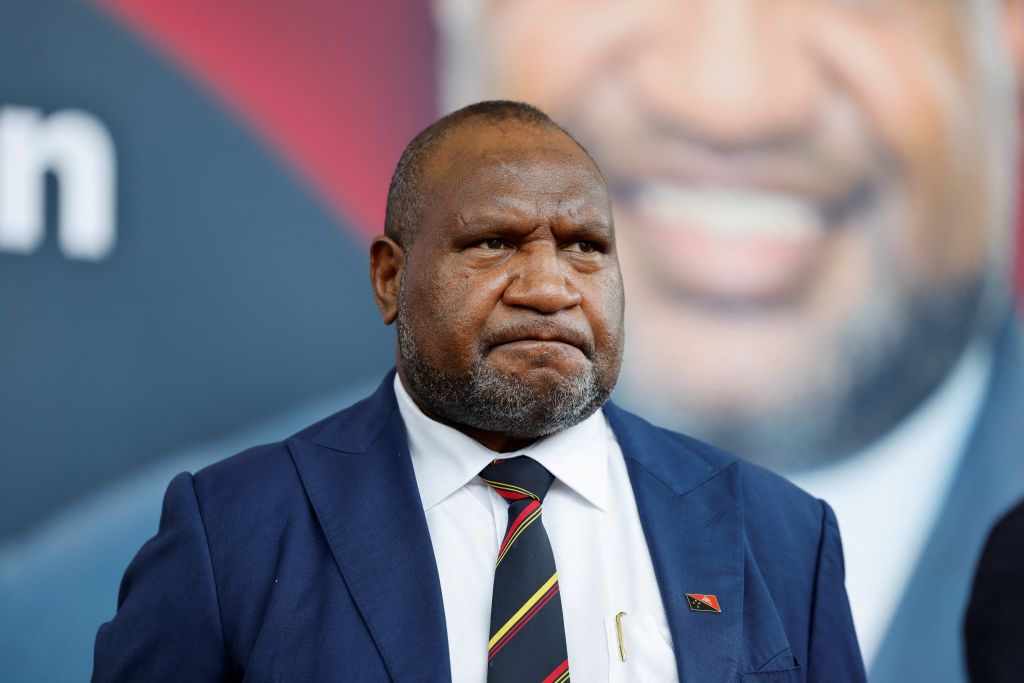
At least 49 combatants as well as an unconfirmed number of bystanders died in a tribal dispute in the restive and remote Highlands region of Papua New Guinea, Australian media reported.
The latest outbreak of violence happened in Wapenamanda town in Enga Province, some 346 mi. northwest of the seaside capital of Port Moresby in the early hours of the morning, according to local paper Post Courier. Later that day, graphic images of bodies being loaded onto a truck made rounds on social media.
Port Moresby police have not responded to TIME’s request for details.
The gunbattle comes weeks after the capital was placed under a state of emergency over riots and protests triggered by a pay dispute.
The strategic southwestern Pacific nation is home to 10 million people who speak 800 languages. Internal security has become a growing challenge as the U.S., China, and Australia seek closer ties.
Royal Papua New Guinea Constabulary officials earlier said that the suspected death toll went as high as 64. But the police later said they received the “wrong headcount” and revised the death toll to 26, the Australia Broadcasting Corporation reported. The number was again revised upward to 49 after more bodies were recovered.
Royal Papua New Guinea Constabulary acting Superintendent George Kakas told ABC it could be the highest massacre in the country’s highlands in recent history.
The Post Courier said the fight was between the Ambulin and Sikis tribes and their respective allies. High-powered guns were reportedly used during the battle, making it difficult for law enforcers to enter the province.
Kakas also told ABC that police were still counting “those who were shot, injured and ran off into the bushes.”
Tribal violence in Enga has intensified since Prime Minister James Marape was re-elected in 2022 amid allegations of cheating that triggered violence throughout the country. Elections have normally triggered outbreaks of violence in the country, but tribal fighting has also been used to resolve conflicts in parts of the Highlands. Last September, ABC reported that police had placed the entire province on lockdown in order to quell the violence.
Enga Gov. Peter Ipatas told ABC that there had been warning signs of the fight reaching a crux and have alerted security officials to a possible outbreak of violence last week. “It's a very big fight that's not normally in Enga province. This is probably the biggest tribal fight we've ever had.”
Oliver Nobetau, a fellow at the Sydney-based Lowy Institute think-tank who has worked as a legal officer in Papua New Guinea’s justice department, tells TIME that violence could spiral further. “In these cases, the first death sort of sets up a chain reaction,” he says. “So the deaths that follow should be seen in the context of revenge killing or retribution for those that have died.”
The government’s response has been constrained by limited police resources available to them. The police-to-population ratio in Papua New Guinea is one officer for every 1,845 people, below the U.N.’s recommendation of 2.2 per 1,000 people.
More Must-Reads from TIME
- Cybersecurity Experts Are Sounding the Alarm on DOGE
- Meet the 2025 Women of the Year
- The Harsh Truth About Disability Inclusion
- Why Do More Young Adults Have Cancer?
- Colman Domingo Leads With Radical Love
- How to Get Better at Doing Things Alone
- Michelle Zauner Stares Down the Darkness
Contact us at letters@time.com